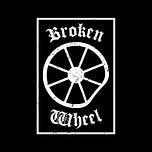- There was a little city with few men in it, and a great king came against it and besieged it, building great siegeworks against it. But there was found in it a poor, wise man, and he by his wisdom delivered the city. Yet no one remembered that poor man. But I say that wisdom is better than might, though the poor man’s wisdom is despised and his words are not heard. -
Many times, we like to pretend that life in the past must have been idyllic, a closer relationship with nature, family, and perhaps even God.
While undoubtedly there are benefits to living in an earlier age, there are many drawbacks as well, like dying when you turn thirty.
I’m an old man depending on the country and the century.
The pros and cons of living in an earlier time are more mixed than we give them credit for. Though there is definitely one major tragedy of previous centuries we no longer have to endure.
The siege.
The only sieges we know about come from movies and historical documents. They were triumphs in both engineering and cruelty.
How do you keep your people fed surrounding an enemy city? How can it be done without trains? How do you not feel sympathy for the people within the walls fighting for scraps.
There are four horsemen of the apocalypse. One way to think of them is the spirits that men turn to when the end has come, and hope has abandoned them.
One of them is famine. We have no idea what this even means, in our nice cars and beautiful supply chains. If anything, we struggle with the opposite.
When the worst of mankind has come to your doorstep, where can you turn? The argument of this book is that wisdom may lead to your salvation, and it may come from unlikely places.
Now, what do we know about this city that has been invaded? Can we learn anything from these few lines?
No one remembered the man who saved the city. Why is that? Perhaps it is because the city is filled with corrupt leaders and politicians, unwilling to share power or renown.
Also, why doesn’t wisdom reside with any of them? Why is it cast to the side and ignored? Why isn’t it put in a place of prominence or at least rewarded?
Man, this place sounds kind of familiar, huh? Starts with a W and ends with a C?
Right. This sounds a lot like the people running our own politics. There is no emphasis on the good and true things of life. Just the convenient and self-serving, even after a catastrophe!
You know, this sounds familiar, again! I think somebody mentioned this is the way the world works. Starts with a J ends with an S?
Jesus said a prophet is hated in his hometown. Why? His wisdom gnaws and destroys the corruption and backroom deals that bad leaders use to grow their influence.
Look back to all the prophets in the Old Testament. How many of them were loved during their age? A lot of the respect we have for them was their willingness to stand up to corruption.
What’s the idea here? This pattern of putting wisdom to the side, pulling on it in a crisis, and setting it aside has been happening for centuries.
Man, that sounds like something again. Starts with an H or M and ends with an R or E.
This isn’t just a pattern of towns. It’s a pattern in us, one we still struggle to see the truth of.
Keep wisdom exalted.














Share this post